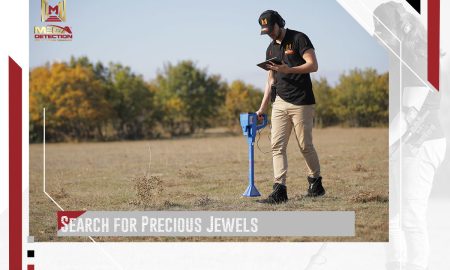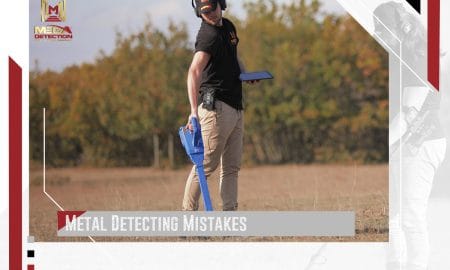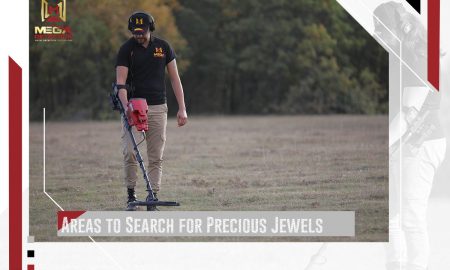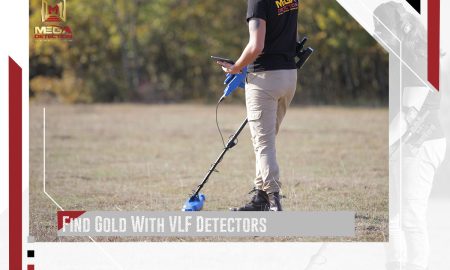Choisir Un Détecteur De Métaux Pour L’or
Ce qu’il faut considérer lors du choix d’un détecteur de métaux pour l’or
Many dream of having their own personal gold rush, but in order to become a gold prospector, you need the right tools. While all metal detectors are capable of finding gold coins and jewelry, a specialty device is needed when hunting for gold nuggets. Shopping for the best metal detectors for gold online, however, can quickly become overwhelming since there are so many options available at a wide range of prices.
This article breaks down what to look for when shopping for the best metal detector for gold and discusses the key considerations to keep in mind as you shop.
While it’s easy to assume that all metal detectors offer similar performance, a number of factors affect their functionality. Features like operating frequency, ground balance, search modes, and item discrimination can make one better for a user’s needs than another option. Keep reading to learn about these important features to consider when choosing the best metal detector for gold.
VLF vs. PI
There are two primary types of metal detectors: very low frequency (VLF) and pulse indicator (PI). Each has advantages and disadvantages.
- VLF metal detectors are simple and affordable. They feature two coils. One creates a magnetic field, and the other detects vibrations within that field. Since their design is more streamlined, they are typically more compact and lightweight.
- PI metal detectors typically use a single coil that both transmits a magnetic field and detects vibrations and disturbances. This style of metal detector is better at avoiding natural minerals common in the soil of beaches and other sandy areas. They tend to be more expensive than their VLF counterparts and are generally used by experienced individuals.
Mineralization
In the simplest terms for metal detection purposes, mineralization is the very slow process of organic compounds converting to minerals. This happens in the soil over many millennia and results in the soil containing numerous particles that have characteristics of metal, including magnetism. These particles produce a magnetic response in metal detectors but aren’t the desirable bits of metal, such as gold, that hobbyists are searching for. Basically, they’re just “noise.”
Gold, in fact, is typically found in areas where the earth contains a high quantity of these trace, undesirable minerals.
Ground Balance
Sensitive metal detectors are capable of detecting even the smallest quantities of metal present underground, but this can become an issue in areas of high mineralization. Fortunately, most high-quality metal detectors feature ground balancing, which essentially programs the device to ignore these undesirable metals.
Beginner-level metal detectors typically feature automatic ground balancing, so the user doesn’t need to fiddle with any complicated controls. More advanced models, however, may require the user to adjust the ground balance levels depending on the type of terrain they’re working in. While automatic ground balancing contributes to ease of use, manual ground balancing offers greater precision.
It’s a good idea to choosing a Metal Detector that offers object discrimination to further narrow down the search results.
Discrimination
The simplest metal detectors simply alert users to all types of metal, whereas more advanced models offer item discrimination, which allows users to identify a certain type of metal. This feature is essential when searching for gold since most users aren’t simultaneously seeking other metals. The most comprehensive metal detectors even have a specific target, like coins or jewelry.
Once the detector identifies an object, it typically alerts the user with an auditory signal. Many models use audio with various pitches that differentiate between types of objects. Some advanced metal detectors also have a screen that shows an image of the type of object that has been detected.
Operating Frequency
When choosing a gold detector, the device’s operating frequency is a key consideration. The operating frequency of a metal detector is measured in kilohertz (kHz) and represents the number of times per second that a signal is sent to the receiver.
Les détecteurs de métaux fonctionnant à des fréquences plus basses sont capables de détecter des objets enfouis à plusieurs mètres sous terre, mais une fréquence plus élevée est nécessaire lors de la recherche d’or car les pièces d’or ont tendance à être très petites. Alors que les détecteurs de métaux VLF standard fonctionnent à des fréquences comprises entre 6 et 10 kHz, les utilisateurs ont besoin d’une fréquence plus élevée d’au moins 15 kHz lors de la recherche d’or. Cela aide les utilisateurs à éviter les métaux plus courants et à se concentrer spécifiquement sur la recherche d’or. Les détecteurs PI fonctionnent différemment, en utilisant des rafales de courant électrique, et fonctionnent à des fréquences beaucoup plus basses.
Bobines de recherche
Les détecteurs de métaux dépendent de leurs bobines pour produire des résultats. La taille et le type de ces bobines ont un impact majeur sur les performances d’un détecteur de métaux. Les bobines plus grandes sont capables de pénétrer plus profondément dans la terre, tandis que les bobines plus petites sont plus sensibles et peuvent identifier des cibles plus petites.
Il existe deux types de bobines utilisées pour les détecteurs de métaux : à balayage concentrique et à balayage large. Les bobines concentriques offrent une meilleure discrimination, ce qui les rend idéales pour les zones contenant beaucoup de déchets. Les bobines à balayage large ne sont pas aussi aptes à éviter les déchets, mais elles ont un meilleur équilibrage du sol pour les zones à haut niveau de minéralisation.












Laisser un commentaire